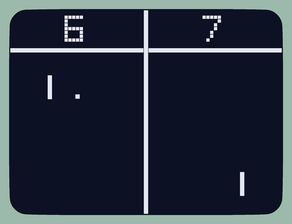Table of Contents
I. Introduction
II. Meet the Tennis Partner
III. Benefits of Choosing a Tennis Partner
IV. Building a Strong Relationship with Your Partner
V. Common Challenges in Training and匹配
VI. Maintaining a Healthy Work-Life Balance
VII. Advanced Tennis Techniques and Strategies
VIII. Troubleshooting Common Issues
IX. Conclusion
I. Introduction
Let's start by defining what we mean when we say "tennis". While tennis is primarily played on a court, it has evolved to include many different styles, such as doubles, singles, and mixed doubles. In this article, we will focus on doubles, which consist of two players who work together to win points against their opponent.
Tennis is an excellent form of exercise that provides numerous benefits, including cardiovascular health, muscle strength, flexibility, and coordination. It can also improve mental clarity and emotional stability. However, playing tennis alone can be challenging, especially for beginners or those who are not used to team sports. That's where tennis partners come in.
In this article, we will discuss how to choose a tennis partner, build a strong relationship with your partner, and overcome common challenges in training and match play.
II. Meet the Tennis Partner
Choosing a tennis partner requires some consideration. First, you want someone who is compatible with you both physically and mentally. This means finding someone who is willing to train with you regularly, support you during difficult matches, and be patient with you if things don't go as planned.
Second, you want someone who shares similar interests and values. If you and your partner enjoy playing the same kind of tennis or having similar hobbies, it will make it easier to connect on a personal level and build a stronger bond.

Finally, you want someone who is dedicated and committed to the sport. Whether you're new to tennis or have been playing for a long time, a dedicated player will put in the extra effort required to perform at their best.
III. Benefits of Choosing a Tennis Partner
There are many benefits to choosing a tennis partner. Here are just a few:
- Increased motivation: Having someone to compete against can provide added motivation and help you stay focused on your goals.
- Better technique: Working with a partner can help you improve your individual technique and learn from each other's strengths and weaknesses.
- Improved physical fitness: Playing tennis can be a great way to stay active and healthy.
- Social connections: Working with a partner can also provide opportunities for social interaction and networking.
IV. Building a Strong Relationship with Your Partner
Building a strong relationship with your tennis partner takes time and effort. Here are some tips for developing a positive working relationship:
- Communicate clearly: Communication is key in any relationship. Make sure you communicate openly and honestly with your partner about your expectations, concerns, and accomplishments.
- Be supportive: Your partner will appreciate your support and encouragement throughout your training and match play. Show them that you are there for them and that you care.
- Respect each other's differences: Tennis is a competitive sport, but it's important to remember that everyone has their own unique style and approach. Respect each other's differences and find ways to complement each other's strengths.
- Practice good sportsmanship: Good sportsmanship is essential in any relationship. Be respectful, kind, and professional in your interactions with your partner.
V. Common Challenges in Training and Match Play
Training and match play can be challenging, especially for beginners or those who are not used to team sports. Here are some common challenges and how to overcome them:
- Lack of motivation: It's easy to get discouraged when you feel like you're not making progress or achieving your goals. Seek out positive reinforcement from your partner and remind yourself of why you started playing tennis in the first place.
- Boredom: Tennis can be a repetitive sport, so it's important to find ways to keep things interesting and fun. Try switching up your routine, practicing new techniques, or trying out different workout routines.
- Technical issues: Even experienced players can encounter technical difficulties during matches. Don't panic! Take breaks, use online resources, and seek advice from your partner if needed.
VI. Maintaining a Healthy Work-Life Balance
Maintaining a healthy work-life balance is essential for overall well-being. Here are some tips for balancing tennis training and life:
- Set realistic goals: Setting realistic goals can help you avoid burnout and ensure that you have enough time for both training and other aspects of your life.
- Prioritize self-care: Taking care of your physical and mental health is crucial for performance and well-being. Make sure to take time for rest, eat well, and engage in activities that bring you joy.
- Manage your schedule wisely: Use your calendar to plan out your day and allocate time for tennis training, work, family, and leisure activities.
VII. Advanced Tennis Techniques and Strategies
If you're looking to improve your tennis skills, here are some advanced techniques and strategies:
- Footwork: Proper footwork is essential for winning points in tennis. Focus on maintaining proper posture, using your knees more than your feet, and using your core muscles to generate power.
- racquet control: Using proper grip and timing can help you control the ball better and increase your chances of landing solid shots. Practice keeping your arm straight and using your forearms rather than your hands to maintain control over the racquet.
- Speed and agility: Improving speed and agility can help you accelerate your serve and hit the ball harder. Incorporate exercises like jumping jacks, squats, and lunges into your training routine.
VIII. Troubleshooting Common Issues
Here are some common issues that can arise during tennis training and match play and how to troubleshoot them:
- Struggling to maintain focus: When you're feeling overwhelmed or stressed, it's easy to lose focus and swing poorly. Take a break, practice deep breathing, and try to relax before starting your session.
- Making mistakes: Making mistakes is a natural part of the learning process. Don't beat yourself up over them. Instead, focus on what went wrong and how you can do better next time.
- Feeling tired: It's important to give your body time to rest and recover after intense training sessions. Make sure to get adequate sleep, eat well, and stretch before returning to practice.
IX. Conclusion
In conclusion, choosing a tennis partner and building a strong relationship with them can provide numerous benefits, including increased motivation, better technique, improved physical fitness, social connections, and improved sportsmanship. To overcome common challenges in training and match play, you should communicate clearly, be supportive, respect each other's differences, and practice good sportsmanship. Finally, to maintain a healthy work-life balance, you should set realistic goals, prioritize self-care, manage your schedule wisely, and incorporate advanced techniques and strategies into your training routine. Remember, tennis is a fun and rewarding sport that can provide both physical and mental benefits. Happy playing!









